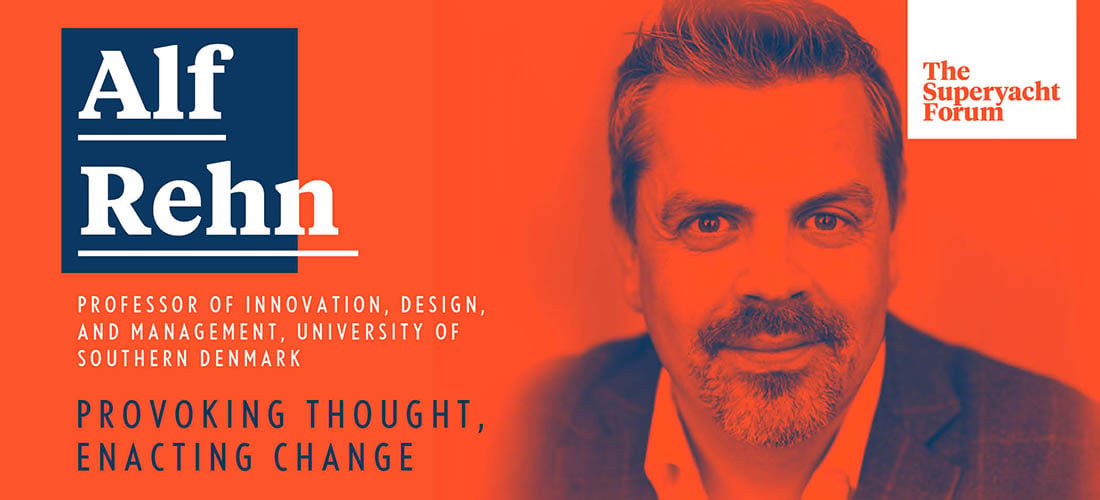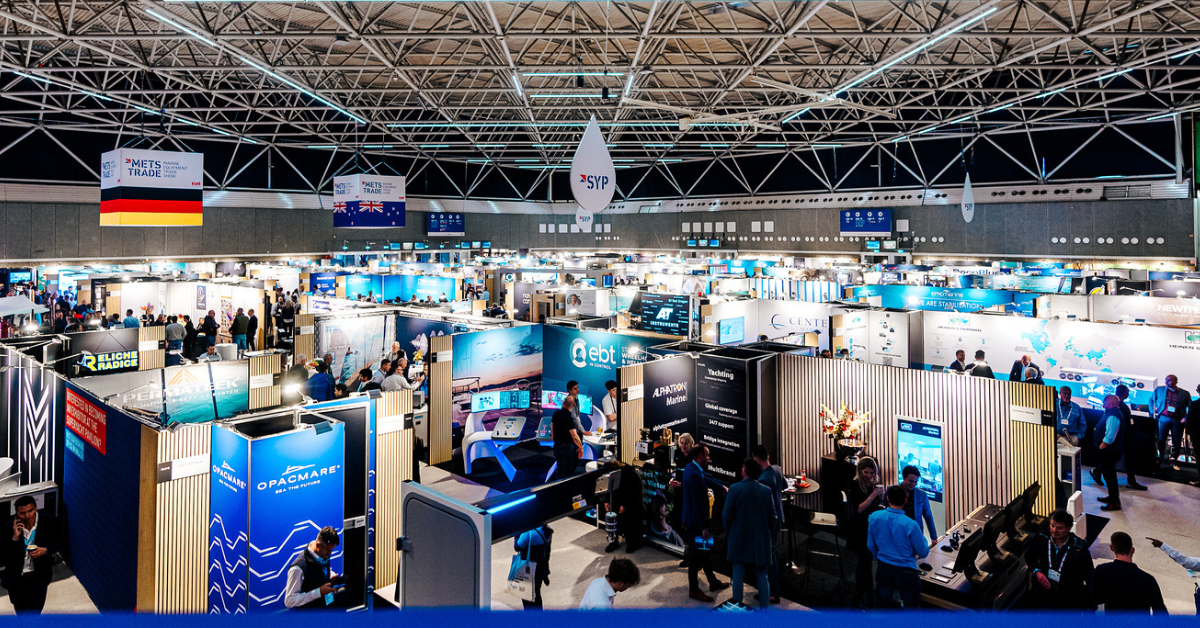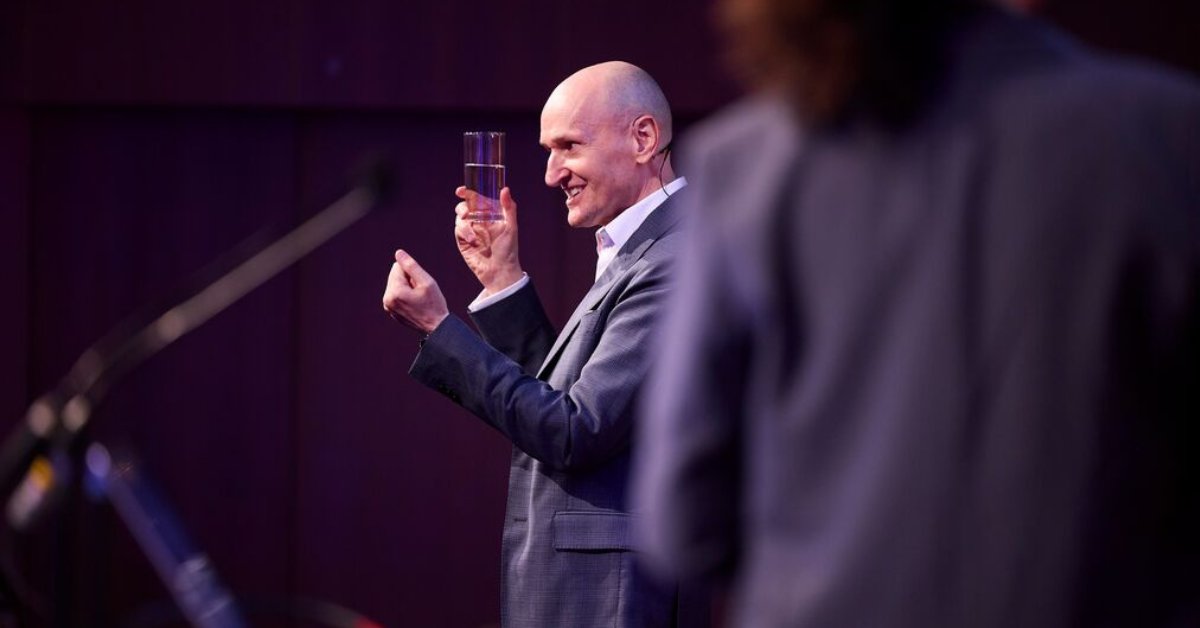
Creativity and strategic advisor Alf Rehn speaks to Rachel Rowney from SuperyachtNews ahead of his presentation at The Superyacht Forum.
Alf Rehn has no time for innovation clichés, “The thing is with people, they think that there is some form of magic potion where you can ‘start thinking like Elon Musk’, and suddenly you will disrupt an industry,” he begins, “It’s actually both more complicated and less complicated than that.”
Rehn is an innovation advisor, but first and foremost he is an academic. His foray into consultancy is the result of an "existential crisis" he experienced after achieving his first chair at the age of 31 (the highest level of distinguished Professor in Finland, where the recipient is usually around 60 years of age). Clearly ahead of the curve, Rehn has spent the last 15 years looking at concerns related to innovation and creativity (“both theoretically and conceptually”) within the corporate world. Author of the book ‘Dangerous Ideas’, Rehn argues that companies need to "shock themselves" into changing their patterns of thinking.
Through his experience from working with a number of high-profile companies across the world, Rehn stresses that the most important part of the process, when looking at innovation within a company, is to understand how the human brain naturally works. “The first thing is to always be open and realistic about just how traditionalist our mindset needs to be,” he says, “Without realising it, we always gravitate to the easy way out.” This self-reflection is key to comprehend what behaviour is limiting positive change.
Once corporations understand that it’s not a simple process, rather a slightly scientific one, to alter any business strategies, Rehn advises that brands look at how they currently react to innovation. “Often, we don’t even realise how good we are at killing ideas. We get new inputs and new suggestions all the time but we tend to shrug or laugh at them, because that is human nature, it is our conditioned response that we have to actually force to change and develop,” he says.
According to Rehn, the most common problem he encounters is the inability for companies to see the talent that already is present within their existing employees. “Every organisation I have worked with have all had the ideas it needs,” he explains. “I’ve never met an organisation lacking in ideas, ever - and I’ve worked with hundreds of them. But what organisations do not realise is just how efficient they are at culling those ideas or killing the disruptive, novel interesting, original ones that they already generate.”
“I’ve never met an organisation lacking in ideas, ever - and I’ve worked with hundreds of them. But what organisations do not realise is just how efficient they are at culling those ideas or killing the disruptive, novel interesting, original ones that they already generate.”
Often, it is those at the senior level who are stifling creativity, finds Rehn. “I come in and speak to the CEO, the problem isn’t that you haven’t had enough brainstorms; everyone hates a brainstorm. The problem can’t be solved by buying tonnes and tonnes of multi-coloured post-it notes. The problem is the fact that you are yawning in the meetings when people actually try to come with new ideas.”
This month, Rehn will deliver a keynote presentation at The Superyacht Forum. In an industry that can be reticent to change, how does he hope use this platform to promote this way of thinking? “I will try to raise the issue of just how much innovation we are still capable of. I will point out that we do have the resources, the ideas and the capacity for innovation and renewal, but also how often we hinder this, and put up barriers for this.”
“I will attempt to present a notion of what we could achieve if our innovation discourse wasn’t so marred by the cheesy cliches of ‘innovate or die’, ‘think outside the box’, or endless references to Apple and TESLA,” he continues. What Rehn hopes to offer instead of this, is a constructive conversation that changes the attitudes within an existing corporation, rather than focusing on the reinventing the wheel. “The session will look at the importance of having both a more natural, and a more critical, open conversation about innovation and renewal. It is less about creating new ideas, and more about creating a nurturing environments for a ideas.”
To find out more about The Superyacht Forum and to register your attendance, please click here.
How are you dealing with innovation within the Marine Leisure Industry? Let us know via the comment box below.
Share your stories on leisure marine industry with us
Do you have an innovation, research results or an other interesting topic you would like to share with the leisure marine equipment industry? The METSTRADE website and social media channels are a great platform to showcase your stories! Let us know via metstrade@rai.nl
Are you a METSTRADE exhibitor?
Make sure you add your latest press releases to your Company Profile in the Exhibitor Portal for free exposure.



